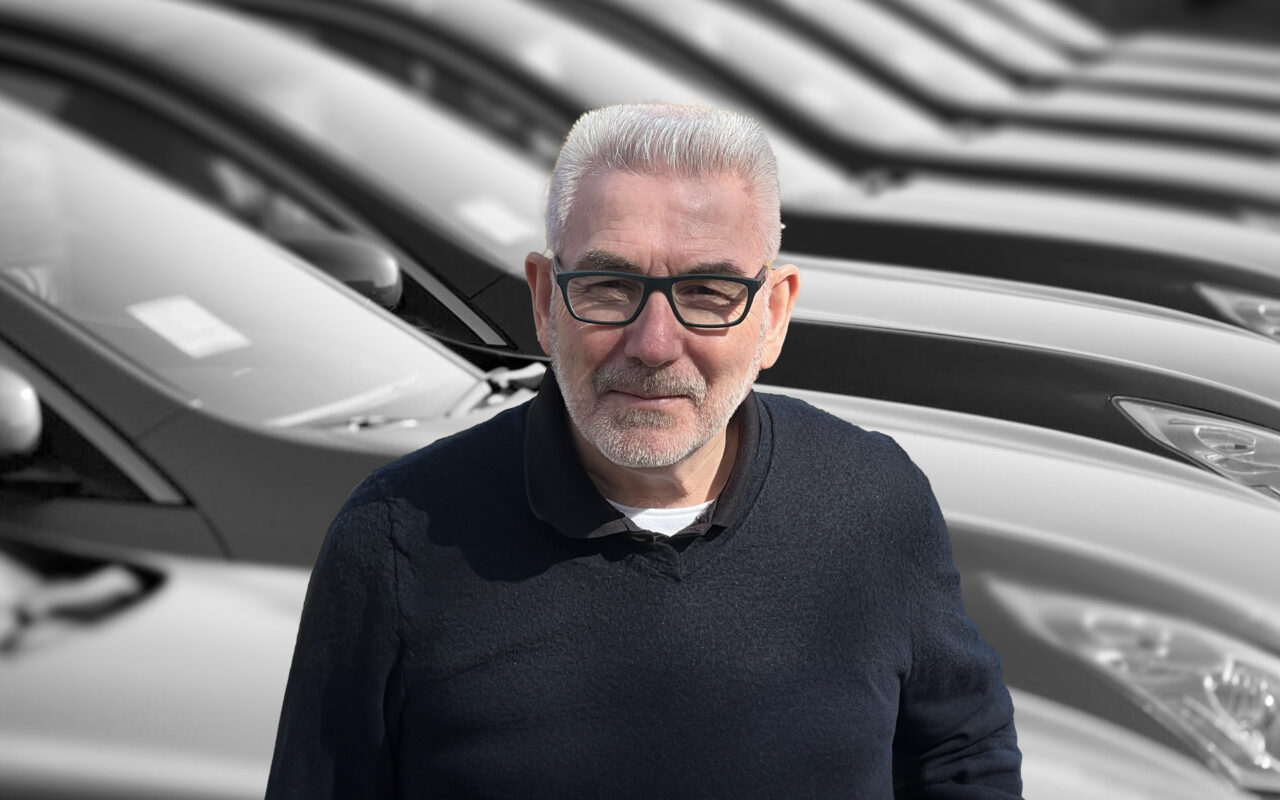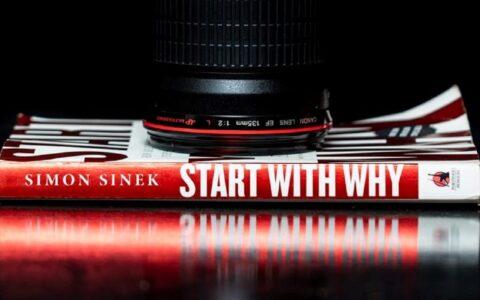Interview: This Man Has No Plans to Retire Even After 46 years in the Chauffeur Business
In an industry shaken up by the likes of Uber and Lyft, and in an era where anyone can be a driver, demand for high-end car ride services may appear to have taken a back seat. But not for Toronto-based High Park Livery owner Robert Spigelman, who has been in this business for over four decades.

Using a flexible business model empowered by technology, which allows him to retain only the best associate drivers, Robert has succeeded at establishing a name for himself in one of the toughest markets in Canada.
At the heart of his service is a highly customer-centric approach. One that seeks to prevent any avoidable mistakes and ultimately, make road travel stress free. Which explains why his company has served many clients and their families for so long.
We caught up with Robert to talk technology, word-of-mouth marketing, and why the chauffeur business is more of a “stress-release business”.
How did you get into the chauffeur service industry and what do you offer in a nutshell?
I've been in this business for 46 years now. I started driving cabs when I was 20 years old in Winnipeg. In 2000, I moved to Toronto and started working for one of the larger limousine companies. By 2013, I decided to go on my own, and I've been running High Park Livery ever since. We are a Toronto-based company and operate in the southern Ontario market.
What I offer differently from everybody else I think, is a very personalized approach. I try to always be of service to my clients and I view everything that I do through my clients’ eyes.
That's one reason why I subscribed to eWay-CRM. The vast majority of independent operators and even big operators don't use a CRM. But that’s because they don't see the advantage of making sure they can remember the client's mother-in-law's name for example. Every little bit of information I come across, I can keep that documented. It allows me to offer a much more personalized level of service.
What is your business model? Do you work on your own or do you have a team working with you?
One of things I noticed when I worked for a large company is that the quality of some drivers was going downhill. That’s one of the reasons I started Hyde Park Livery. The large companies, to make sure they had drivers for all their cars, have started hiring people who didn't provide the same level of service that our industry requires. When I went on my own and as I grew my business, I began using like-minded associates. They're all subcontractors and all handpicked by me. They're sometimes referred to me by other people I work with.
I certainly scrutinize them and make sure they live up to the standards. If I send a guy out on a run to cover for me, I check with my client if everything is good, what was good, and what was bad. I have four or five associates whom I work very closely with, but I probably have a pool of about 20.
The idea was that if I get a call from one of my clients and he says ‘That last driver wasn't very good.’, I don't have to worry about having to keep them driving just because I have to pay the insurance and lease payment on the car. That's not my concern. I just don't use them again. This allows me to keep the level of my service very high.
I offer a black car chauffeured service, including sedans and SUVs, and if need be, minibuses. My typical client is somebody who's looking for a car service so they can sit back comfortably, do work, take phone calls, enjoy, relax, and leave the driving up to us. Usually, they are C-level clients like CEOs and CFOs. Most of what we do is corporate work.

How many cars do you have?
I beneficially only have one car, but I have access to hundreds of cars.
So this is a different business model for chauffeured service and it’s smarter, right?
There are advantages and disadvantages. There are sometimes issues because if I’m double booked and need some more drivers, I’ve got to go and find them. But that is well offset by the fact that I make sure the other driver provides the same level of service quality that my clients are used to.
My choice is not to invest in cars; my choice is to invest in technology. For example, from my car where I'm parked, I can check and see the guys are on location properly. I'm a small company, but I use a lot of technology.
My industry has become a job of last resort. Many people in it do not provide the level of service that a client expects to receive. The quality I've seen in 46 years in this industry has gone downhill. That's why a lot less people use cars and taxis.
Can you tell us more about the technology that you've invested in?
As a small company, I use dispatch software called Fasttrak. It allows me to not only keep track and send confirmations to my clients and send them reminders of trips, but once the information is in, I have the person’s right address. And that’s one of the great benefits.
In our industry, it happens many times where you have to send a guy on a trip quickly, so you text him and you’re supposed to send him to 2992, but you end up sending him to 2919 because it’s typed in wrong. Then he shows up and he's got the wrong address. By using Fasttrak, I'm able to change one driver to another. I click it, and he gets a text message and email with the trip details, so there’s no room for error. Also, the client receives a text message with the updated driver details. So that's one technology I've invested in.
I’ve been on my own for more than 10 years now and I've never sent a driver to the wrong address, which many times happens in our business.
With billing and everything else, it's all electronic, and that stops billing errors from happening.
Many unavoidable things can happen in our industry that aren't our fault. We can be late because of traffic. I give myself an hour to get someplace that normally only takes half an hour, but it still ends up taking an hour and 20 minutes because of traffic. There are all sorts of situations we don't have control over.
I also use a flight service to verify flight numbers and details. I do everything in my power to make sure the mistakes that can be avoided, will be prevented before they happen.
How do you usually find your clients?
I have clients I've been driving since I was with the other company that I used to work for back in 2000. And many of my clients have been with me since 2013 when I went on my own. Either they’ve been referred to me or I found them through other sources.
The vast majority of work that I do is for long-term clients, 10 years or slightly shorter, as well as referrals from other clients. My retention rate is extremely high. Probably the highest in the industry.
Word of mouth is a very important aspect of your business, right? Perhaps more than advertising.
It’s hard for us to distinguish ourselves as being any different from anybody else. You need somebody to explain that High Park Livery is good. And even then, it still takes people a few bad experiences with the companies that they've used before they start using you. Only then they will notice the difference.
If I told you about a really good restaurant, chances are, if you're a regular restaurant goer, you'll visit it. Especially when it’s recommended by somebody whose taste you trust.
With some of my best clients, even after their team leaders recommended my service to them, it still took two years before they called for the first time. Because they were still using the guys that they used, and then eventually, that person messes up.

Southern Ontario where you work is very competitive. How do you stand out from the crowd and differentiate yourself?
I wish I did more to really stand out. I often say that I don't do anything to stand out. I try to instil my basic full philosophy with everything I do, which is that you must see everything through the customer’s eyes. I have a saying when I'm having trouble with a vendor of mine. I say “your job is to make my job easier. If you don't make my job easier, I don't need you.” So, I do everything in my capacity to make my client’s life easier.
Recently, I had a post-surgery customer in the car, and we had to run to the drugstore to pick up some stuff. No problem, we just go. I had another customer years ago who came into town because his daughter was involved in a play. There was going to be a party after, so he brought champagne, but he didn't know how we were going to keep it cool. So, while he was at the play, I ran to a store, got ice, I had plastic bags in my car, and I put the champagne on the ice.
So, I’m always thinking about how I can be of service to make it better for my clients. Because if I look after the client, they're going to look after me.
This was instilled in me by my grandfather and my dad. I can remember sitting with them around the table, they both practiced that exactly. My dad would say ‘whatever decision you make, it should always be in the customer’s best interest. Because if you look after your customer, they'll look after you.”
Your family must have been in the service industry as well?
They were in the wholesale meat business. The thing is, we're all in the service business, no matter what we do. Even if we're selling a product, that product has to serve the customer. There's no sense in buying a product that doesn't serve you. Even with technologies like Fasttrak and eWay-CRM. They’re products, but they both serve me. It all comes back to making my job easier.
So what do you enjoy most about your work?
Every day is a new day. I don't have routine and I'm a person who doesn't like routine. Also, I've always been very interested in people, and the thing I love about this job is that I meet a wide variety of people and get to interact with them.
Even with clients whom I see on a regular basis, every day stuff happens, and to get their perspective on it, that’s the part I enjoy. I like the fact that, especially in southern Ontario, I get to go places—parts of the country and the city—that I normally would have never gone to or driven through.
I truly think we're in this world to help people, to make other people's lives better. Sometimes it's very mundane. You pick a guy up who you picked up 1,000 times and you're taking them to the airport. But occasionally, you go through experiences.
Last night was a perfect example: one of my clients and his wife had to host an event for his work, so they were tied up. But their 13-year-old daughter had to get to a different end of the city for a soccer game. So, again, I was able to take that stress out of their life. I dropped them off where they had to go, took their daughter to her soccer practice, brought her back home, and then went back to pick them up.
So it’s all about helping people reduce their stress. Which reminds me of something I often say about what we have to do in our business: “I'm not in the driving business; I'm in the convenience and stress release business”. It’s also why I have customers for long periods. Certainly, sometimes you need to get from point A to point B, but if I can truly make it convenient and reduce their stress, they're going to use my services more.
Where do you see yourself in the next five years or so?
I'm 66 now and I still really enjoy work! I’m going to drive for as long as I can drive for, as long as my health holds up. My wife is getting close to retirement so at some point in time, I hope to start taking it easier and not working as many hours.
Our industry has changed a lot due to all sorts of different reasons, because of Uber, because of the number of cars people have today, and because of companies having to watch their bottom line to cut expenses. Companies don't spend the same kind of money they used to on cars. So, lately I've been doing more advertising on the Internet, like Google ads.
My plan is as I ease into retirement, to become more of a dispatching company and less of a driving company. I’ve built up a pretty good model I have a pretty good team of younger people. So, what I hope to do is use the amount of business that I have, and the currency I have with my clients, to not drive as much and dispatch more, as I ease out of the driving. But my plan is to never really retire.
You don’t plan to ever retire because you’re clearly so passionate about your work.
That’s true. I never think about the number of hours I work. I never think about how long I've been on the job for. Every day is an adventure. I don't know what the day is going to bring.
Even after driving the same clients for years, every day they're different. Some days they want to talk a lot. Some days they just want to sit back and relax. Other days they're so busy on their phone, sending emails and talking. Some days you're talking about sports with them or politics. Some days you're talking about just life in general. So, every day is an adventure, and I don’t want to give that up.











